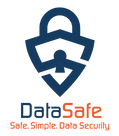The numbers are on the rise – and in this case, we aren’t talking about COVID test results. In just a few months, the number of consumers that suspect they are at risk of identity theft has increased. In February of 2020, we saw numbers from CyberScout that out of 1050 employed adults in the U.S., 52% felt that they would never become a victim of identity theft and 55% were confident that it was “somewhat” or “very” unlikely that their financial accounts would be hacked.
Today, just three months later, we are seeing those numbers at 57% when it comes to expecting identity theft; 55% feeling somewhat likely that they will be a victim of a financial hack and 20% believe it is “very likely” to happen to them.
What Changed?
Is it because we ‘slowed down’ and started to pay more attention? Or that we are not all working full-time and have had more time to watch the news and comprehend the likelihood of being hacked? A few factors seem to be in play here. First, an increased number in the remote workforce is a real driving force behind creating awareness. Again, it may also come down to us having more time to pay attention to the news and become more aware as we work from home’ which could reinforce the risks. Coupled with the fact that our identity and credentials are the sole factor in how we receive (or didn’t receive) a stimulus check – this is perhaps making consumers much more aware of the value of their identity as well.
Complaints Are Up
An even higher rate of awareness is seen with data from the FBI and the number of complaints filed post-coronavirus. With 3,000-4,000 per day, this is an increase from the 1,000 that were filed pre-coronavirus. The Federal Trade Commission also reported an increase in fraud reports, with $13.5 million dollars lost from January through April in coronavirus-themed schemes.
Can We Do More?
Short answer: Always. Keeping up with cybercriminals is an ongoing process. As soon as we’ve identified one tactic, they’ve created another. At Data Safe we educate our clients to know that strong passwords are only the first point of entry. Remember to keep social accounts on lockdown and don’t friend strangers or open unfamiliar emails. Adding a VPN as an additional layer of security will also help in protection.
We encourage you to monitor personal identity and credit reports as often as possible – that can mean checking on bank accounts daily for unknown charges. While these accounts aren’t perhaps related to your direct business or workplace directly, they are related to the individual. Pair that with the fact that you could be practicing poor password management and reusing passwords on company accounts, and personal security has suddenly become a major issue for the business as well.
For additional information or support in any phases of your business continuity or data security plan please contact us at DataSafellc.com

